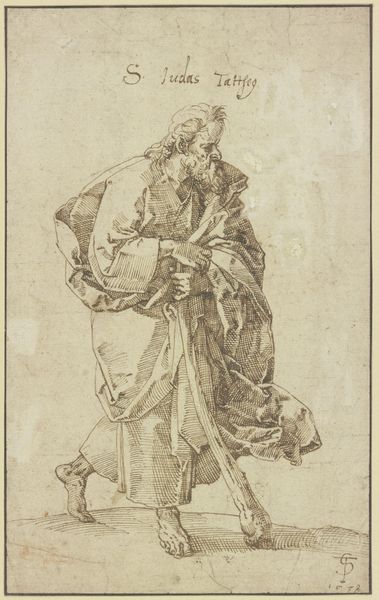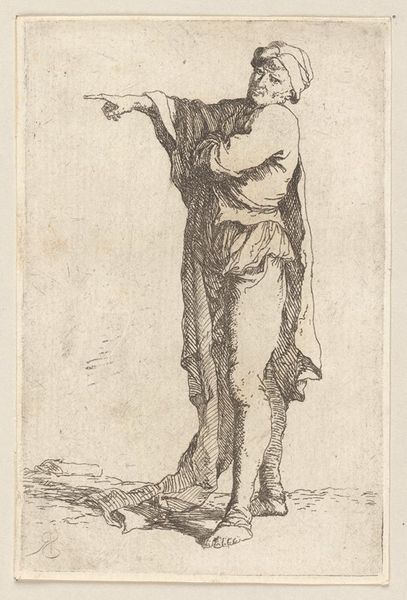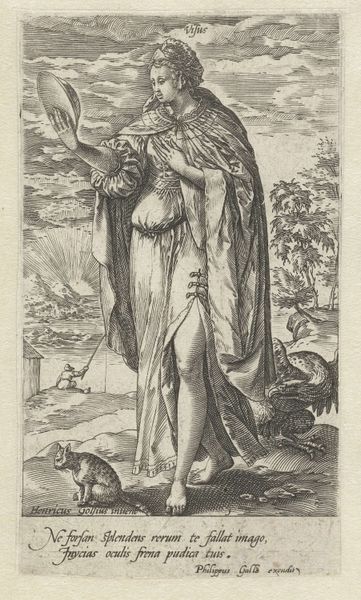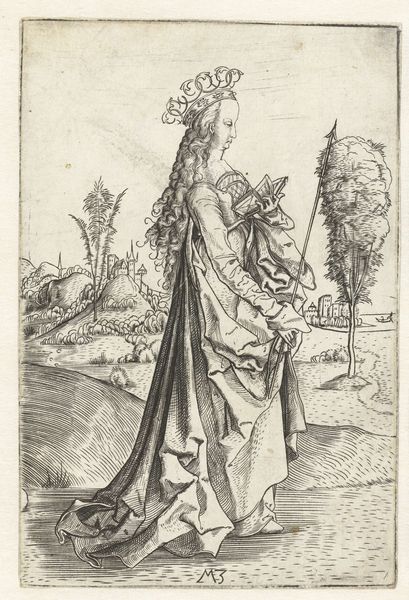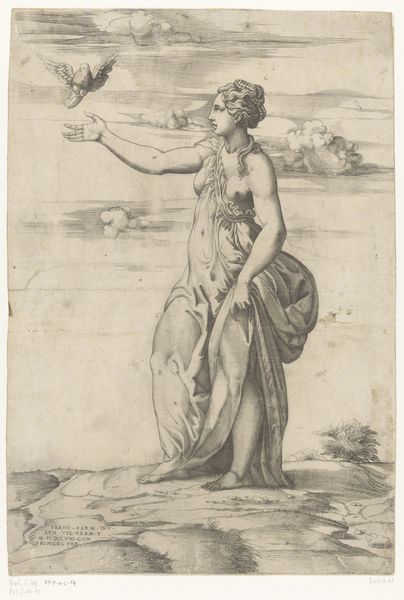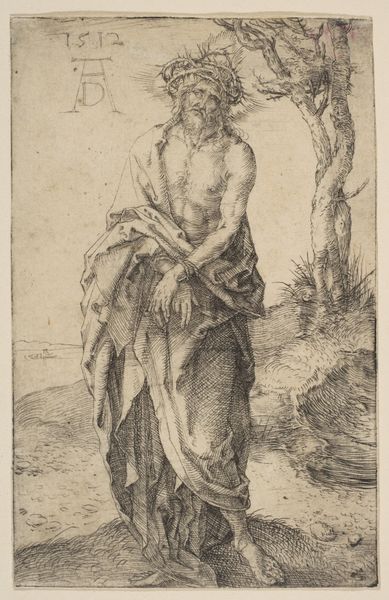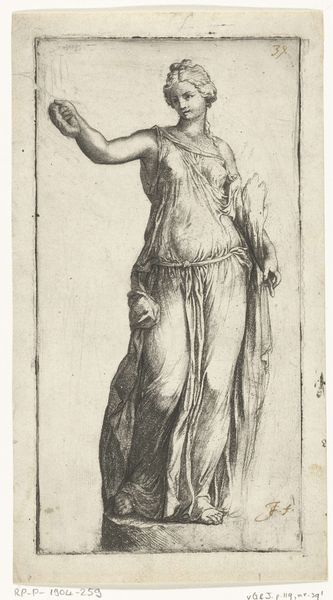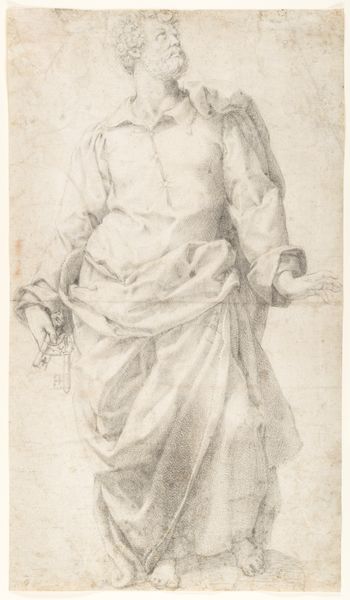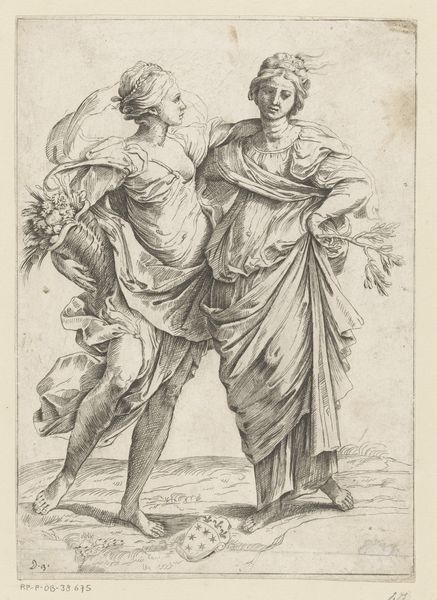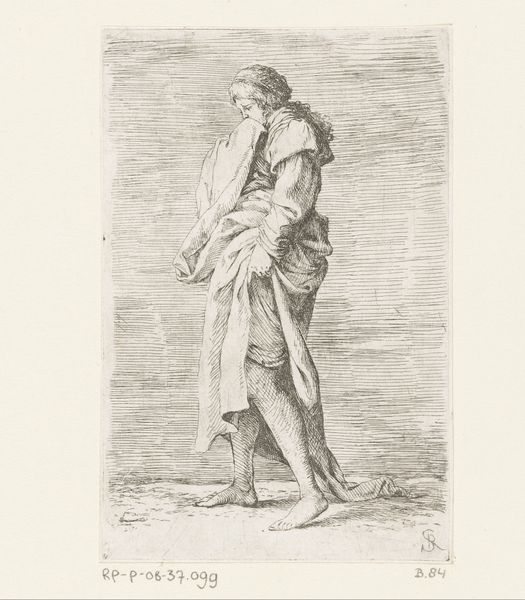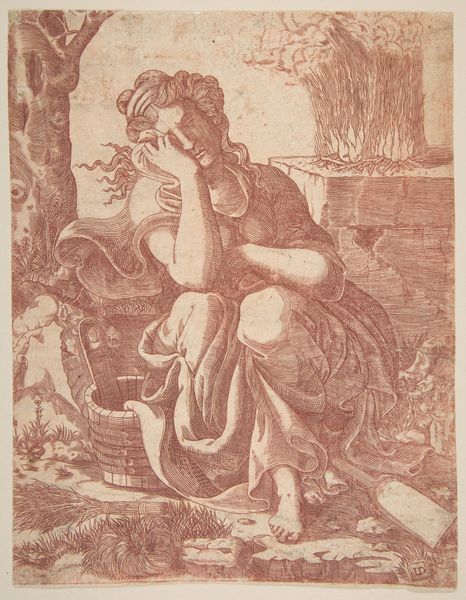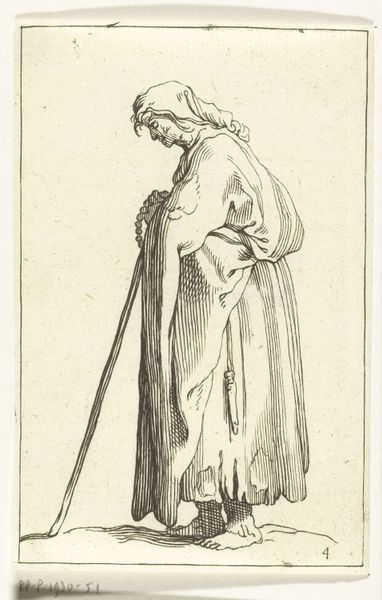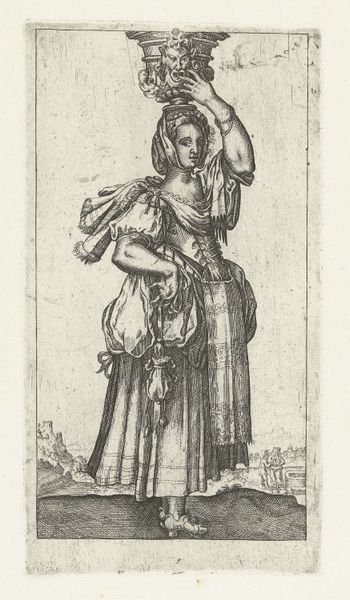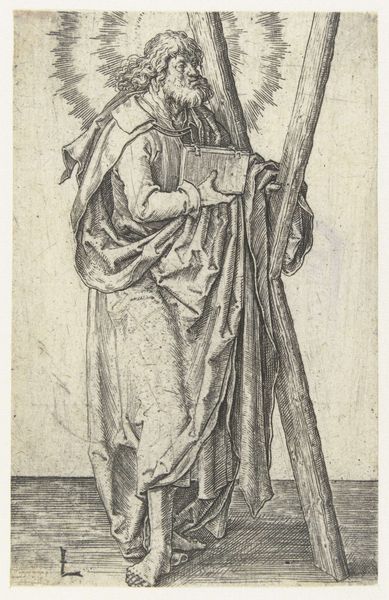
etching
#
etching
#
landscape
#
etching
#
figuration
#
history-painting
#
northern-renaissance
Dimensions: height 118 mm, width 74 mm
Copyright: Rijks Museum: Open Domain
Albrecht Durer made this print of Christ as the Man of Sorrows around 1512. Durer was a master printmaker, and here, he used the intaglio process of etching to create this image. He would have covered a metal plate with a waxy ground, drawn the image with a needle, and then bathed the plate in acid. The acid bites into the metal where the needle has exposed it, creating recessed lines that hold ink. Think about how the etched line defines the image. See how it models the form of Christ’s body, and creates a somber mood. Line by line, Durer built up this image through labor, skill, and careful planning. Printmaking in Durer’s time was a relatively new technology, and it allowed images to be reproduced and disseminated widely. Consider how the relatively accessible medium of printmaking allowed Durer to share this image of Christ’s suffering with a broad audience. It reminds us that the meaning of art lies not only in the image itself, but also in the way it is made and shared.
Comments
No comments
Be the first to comment and join the conversation on the ultimate creative platform.
